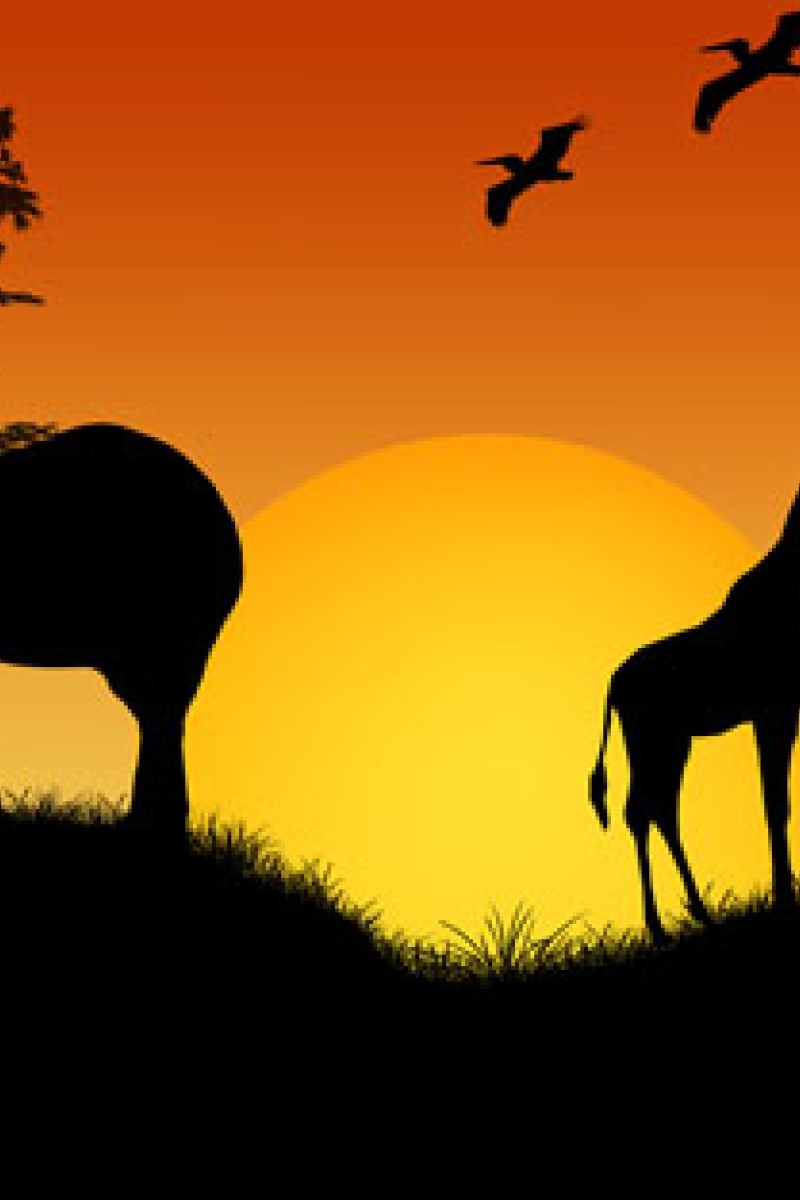 iii
iiiWhen Pang Chun-chiu talks of Kenya his face lights up. 'I saw two black rhinos wandering around in the sun,' he says. 'I think it was a mother and her calf.'
Pang was among 25 students from the University of Hong Kong's faculty of biological science who spent 15 days exploring the African wilderness. He and two other students shared their experience with Young Post.
'A leopard crawled under the wheel of the jeep I was in,' says Sung Yik-hei of his most memorable moment. 'It was hunting a little antelope - a dik dik - and it used the jeep as cover.'
He adds: 'It's sad to see leopards so used to humans that they take shelter under the safari jeeps to hunt.'
For Alex Yeung Chee-yu, the sight of thousands of flamingos at Lake Nakuru was simply amazing.
'First we went up a mountain and saw the lake from there. The birds looked like pink specks of dust. But then we went down to the lake, there were thousands and thousands of them,' he says.
The students visited seven natural reserves, including Mount Kenya National Park and Samburu National Reserve. They saw different landscapes, including savannahs, wetlands, scrubs and mountains. They were impressed by the clear skies, the unpolluted air, and the beautiful sunsets.
The trip was sponsored by K11 mall as part of its 'caring for nature' motto. K11 founder and chairman Adrian Cheng Chi-kong says they wanted togive the students a chance to experience the wilderness and learn about conservation.
They also want to raise public awareness of the importance of protecting our fragile environment.
Trip organiser Dr Billy Hau Chi-hang, an assistant professor at HKU's school of biological sciences, says the students' experience will help them become leaders in conservation efforts.
The students have set up an exhibition of photographs they took on the trip at K11 mall, explaining the importance of biodiversity.
Hongkongers will never see herds of zebra grazing in the New Territories, but the students believe the city can find a balance between economic growth and sustainable development.
They are organising eco-tours, including bird-watching at Kowloon Park and night safari at the Tai Po Kau Nature Reserve, to raise awareness of conservation in Hong Kong.
The students have seen how eco-tourism works in Kenya. They want to show Hongkongers the city has a lot to offer in terms of nature.
Pang says Hong Kong has a relatively small natural environment compared to the large-scale wilderness of Africa.
One popular tourist destination in Hong Kong is the Mai Po marshes where all sorts of wild birds can be seen. But Pang says if visitor numbers are not controlled and eco-tourism not well managed, the environment will suffer.
The students are eager to put what they have learned from the trip into practice.
Don't miss the students' personal accounts and impressions, which will be published on Monday's Green Living pages, starting this Monday with Alex Yeung Chee-yu.
Hollie is a Young Post intern
Photos, courtesy of the Students
embedded thumbnail
View Photo Slideshow end thumbnail
<!--//--><![CDATA[// ><!-- PDRTJS_settings_1772574 = { "id" : "1772574", "unique_id" : "default", "title" : "", "permalink" : "" }; //--><!]]>
